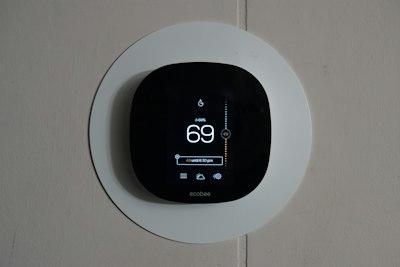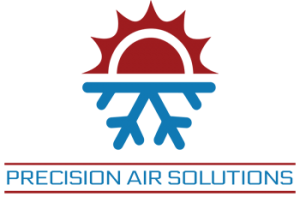HVAC Myths are abundant, and when it comes to HVAC systems, there are a good number of misconceptions that can lead you to making very wrong decisions in the end. By having a demystified view of your HVAC unit, you can tap into its true power, enjoy an energy-optimized cooling system that provides better indoor air quality, and maintain a properly functioning heating system, leading to fewer repair expenses.
In this article, we will be bursting those myths and shedding more light on facts about the HVAC unit that you should be aware of. So join us throughout the article as we unravel.
Let’s get started!
Key Highlights
-
- HVAC myths can lead homeowners to make decisions that harm their systems and waste money.
-
- It is important to change air filters regularly, not just once a year, to maintain air quality and system efficiency.
-
- Bigger HVAC systems are not always better; it is important to choose the right size for your home to avoid wasted energy and comfort issues.
-
- Closing vents in unused rooms does not save money; it actually increases pressure and can cause air leaks in the ducts- HVAC maintenance is not only needed when the system breaks down; regular maintenance prevents damage and improves energy efficiency.
Myth 1: Lowering the Thermostat Saves More Energy
Lowering the thermostat doesn’t always save more energy as believed to do so. In reality, it could turn out to be quite the opposite. Excessively lowering your thermostat can lead to energy loss and even cause your HVAC unit to get inefficient at doing its work. Instead of lowering the thermostat, you can decide to maintain a moderate temperature that’ll get the room neither cold nor hot. In order words, leave the thermostat at room temperature. With this, you can be sure of lower bills and an efficient operation of your unit. You can consult with an HVAC professional for personalized advice.
Myth 2: Bigger HVAC Systems Are Always Better
While many rate HVAC units by their physical size, yet an HVAC unit can get oversized and lead to ineffective operation and increased energy cost. That’s why before installing an HVAC unit in your home, you should first bring in an HVAC professional to properly size your room and recommend the right HVAC size to use. Don’t fall for the misconception that bigger is always better in HVAC systems. You might end up installing an oversized unit in your home.
Myth 3: Closing Vents in Unused Rooms Saves Money
This is another common HVAC myths. Closing vents in unused rooms does not save money. In fact it can rather disrupt the airflow of the HVAC system and damage it. When you cover vents, it doesn’t stop your system from producing hot or cold air. The produced air pushes the wall of the vent, leading to high pressure and potential damage to the system. Therefore, the reverse of the myth is the truth. It is more efficient to leave the vents open to maintain proper damage and avert unnecessary strain on the HVAC unit.
Myth 4: HVAC Maintenance Is Only Needed When the System Fails
This is another common HVAC myths that can get you in trouble. Regular HVAC maintenance is key and used as a preventive measure to avert breakdowns and ensure optimal efficiency. You don’t need to wait for your system to first fail. Fixing your unit when it fails is always an expensive option. This is because the damages done must have escalated to have made the system fully dysfunctional. By scheduling routine maintenance with a professional HVAC contractor, you can be sure to detect issues with your HVAC when they are still minor and avert major issues. Additionally, knowing when to call in an air conditioning repair service can save you time and money in the long run.
Myth 5: Manual Thermostat Adjustments Are More Efficient Than Programmable Thermostats

Well, it’s usual that our grandfathers have this perception of older models outperforming the newer ones. And that’s where this misconception came from. The truth is that manual thermostats adjustment is a thing of the past and isn’t in any way better than programmable thermostats. By scheduling your temperature, you minimize waste to the barest minimum and you create personalized comfort in all areas of the home. Smart thermostats can learn patterns you create (example of a pattern is that you leave for work every 8am and get back by 2pm) and automatically adjust itself to rely on that pattern and save cost.
Myth 6: Air Filters Need Changing Only Once a Year
Yes, the air filter needs change. But on a more regular note. Dirty filters reduce the efficiency and lifespan of your unit. It also leads to a toxic environment for allergic people and poor indoor air quality. Although there isn’t a particular frequency written on stones that you should adopt. It all depends on factors like pet ownership, danders allergens, and location (some locations are usually more dusty). But if I’m to give advice, replace your filter at least every 3 months to keep it in perfect condition.
Myth 7: An Energy-Efficient Unit Automatically Lowers Energy Costs
Having an energy-efficient unit is great. But it doesn’t automatically lower energy cost. There are various factors in the energy-efficient unit that lead to cost-saving. Some of those factors are insulation, ductwork condition, and thermostat settings. Also, by taking good care of your unit through regular maintenance, you secure the efficiency of your unit. It’s essential to consider the efficiency as a result of the integral factors mentioned, rather than solely relying on the efficiency of the HVAC unit to lower cost.
Myth 8: Setting the Thermostat Higher Heats the Home Faster
Setting the thermostat higher doesn’t heat your home faster. HVAC systems operate at a constant rate, irrespective of the temperature setting. So cranking up the thermostat won’t speed up the heating process; it will only make your system work longer, leading to energy inefficiency. It’s recommended to set your thermostat at a comfortable level for gradual heating, ensuring efficient energy use. Trust the system’s capabilities for consistent and optimal heating without unnecessarily raising your energy bills.
Myth 9: Duct Tape Is Ideal for Sealing Ductwork Leaks
Duct tape is not suitable for sealing ductwork leaks, as it may degrade over time due to temperature changes and lose adhesion, leading to further air leakage. Proper duct sealing should be done using foil tape or mastic sealant specifically designed for HVAC systems. These products provide a durable seal against air leaks, ensuring optimal energy efficiency and air quality in your home. Avoid relying on duct tape for crucial HVAC maintenance tasks to prevent potential issues down the line.
Conclusion
It’s crucial to separate HVAC myths from facts to ensure optimal system performance and energy efficiency. By debunking common misconceptions like thermostat settings and maintenance frequency, you can make informed decisions that benefit both their comfort and budget. Seeking professional advice for HVAC service and maintenance needs can prolong the lifespan of the system, maintain indoor air quality, and prevent unnecessary repairs. Stay informed, stay efficient, and reap the rewards of a well-maintained HVAC unit. Contact an HVAC professional today like Precision Air Solutions and get the best out of your HVAC unit.
Frequently Asked Questions
Some common HVAC myths include the belief that lowering the thermostat saves energy, that bigger HVAC systems are always better, and that closing vents in unused rooms reduces costs. These HVAC myths can lead to inefficient system performance and higher energy bills.
Yes, HVAC myths can significantly impact system performance. For example, believing that setting the thermostat higher will heat your home faster or that air filters only need to be changed once a year can lead to decreased efficiency and higher repair costs.
To avoid falling for HVAC myths, it’s crucial to stay informed and consult with a professional HVAC technician. They can provide accurate advice tailored to your system and dispel common misconceptions, such as the need for regular maintenance and the proper sizing of your HVAC unit.
Yes, several HVAC myths relate to energy efficiency. For example, some believe that having an energy-efficient unit automatically lowers energy costs, or that manual thermostat adjustments are more efficient than programmable thermostats. Understanding the facts can help you make better decisions about your HVAC system.
Addressing HVAC myths is important because misconceptions can lead to inefficient system operation, increased energy consumption, and unnecessary repairs. By debunking these HVAC myths, you can improve your system’s performance, enhance indoor air quality, and reduce overall costs.
Understanding HVAC myths can benefit you by helping you make informed decisions about your system, leading to improved efficiency, lower energy bills, and fewer repairs. Knowledge about these myths ensures you avoid common pitfalls and get the most out of your HVAC investment.

